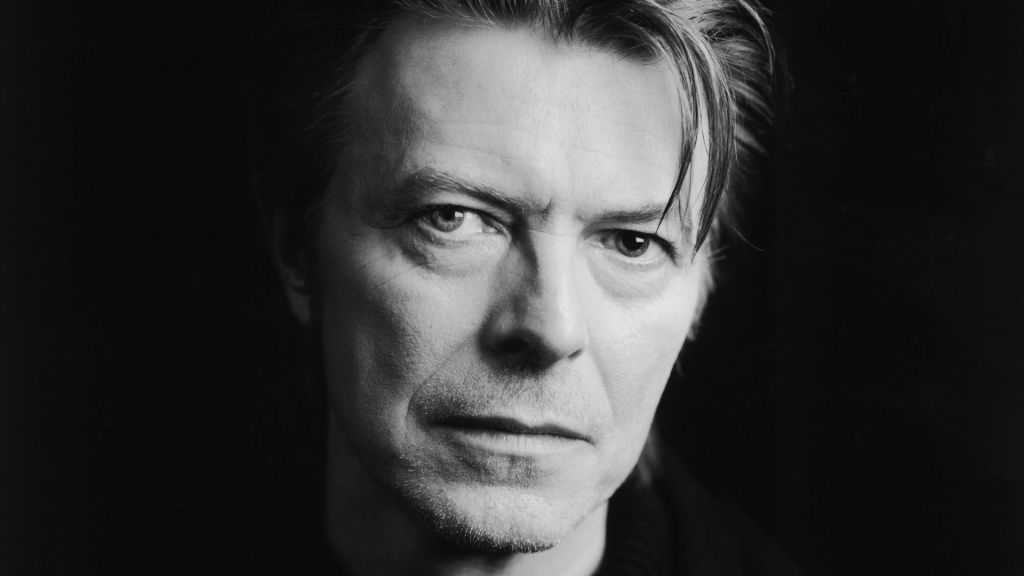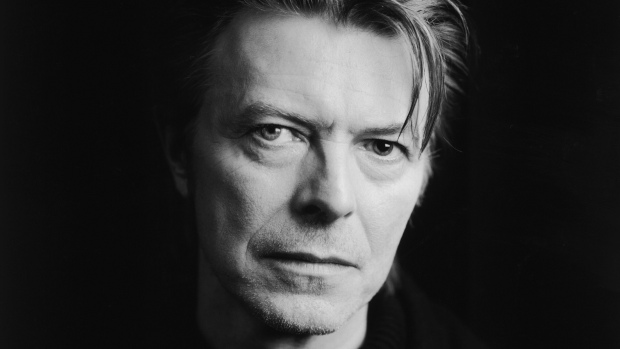CALVIN LAW looks back through David Bowie’s screen career.
Though I loved him as a musician, I think it not particularly necessary here to dwell on the excellence of David Bowie with regard to the impact he had on music when, over these next few days, there’ll be multitudes of articles regarding his musical numbers and career reinventions. So, I thought, why not look at a different, but no less impressive, side to Bowie’s talents? That being his excellence as a thespian, and his incredible utilisation of his musical persona on screen.

While the praise given to Bowie for his musical talents place him on heaven’s high, unfortunately his work as an actor is often vastly underrated, even chastised. A common argument against him was that he was ‘playing himself’ in all of his performances. He did indeed play characters within a particular ‘type’, but what differentiated him from someone who just coasts through film after film, putting no effort into their performance as ‘themselves’, is that Bowie knew how to utilise the screen presence he is known for, and then use it to create a character.
Musicians in general are particularly susceptible to criticism in this regard. And while this criticism is valid in some cases (for example, The Beatles, apart from maybe Ringo, really didn’t have much in the way of onscreen talent), it doesn’t quite ring true to me for others. For example, Ludacris (a rapper first and foremost, but he’s good in Crash and one of the few people who can act in the Fast & Furious series), Ice Cube (who does some fine comic work in the 21 Jump Street series and gave a fantastic performance in Boyz N the Hood) and Mariah Carey (surprisingly touching as a therapist in Precious) are all examples of singers-turned-actors who did very well within their specific range of acting.
As for Bowie? Well, Bowie on screen was definitely a particular style of acting. Were there elements of himself in his performances? Certainly—whenever one sees Ziggy Stardust strut across the screen, the very nature of the casting choice is made clear. The character he is playing is meant to stand out as being Bowie-esque; it was never intended to be a chameleonic disappearance into the role. But while Bowie could’ve definitely just gone on autopilot for his cinematic performance, going through the motions in exactly the same way as he presented himself through his music, he never did that. Though it was always noticeably him in his roles, he added a little bit extra to make each David Bowie performance identifiably him, but also distinct from other roles.

In The Man Who Fell to Earth, Bowie plays alien Thomas Jerome Newton, arriving on Earth to salvage water for his ailing planet. This Nicolas Roeg production makes no qualms about it being an obvious showcase for Bowie’s presence as a popular music artist. His mannerisms, way of speaking, oddly alluring and out-of-this world appearance – just the general vibe he gives off as a persona – provide the initial presentation of the character as a very convincing space oddity (no pun intended). The performance is deceptively complex. Bowie isn’t just playing aspects of himself onscreen; he’s playing on the audience’s preconceptions of him from the media and his music. He takes on all the things that make Bowie Bowie, and fuses them into a character whose traits make it difficult for him to identify with earthlings and the rest of the world.
The quirks of the character are rendered naturalistic because they just feel so right for Bowie, but he doesn’t stop at that: he adds a heartbreaking, sensitive emotional core to his relationship with Mary-Lou (Candy Clark). The best way to describe this relationship in the film is a sort of twisted subversion of the central romance in Edward Scissorhands. Bowie plays on the sexual allure of a mysterious and intriguing identity, before taking it into darker territory with the film’s tonal shifts. That Bowie is equally adept at playing the shy and inquisitive outsider looking for love, and the disillusioned, alcoholic broken-hearted man by the film’s conclusion, is testament to how he successfully navigates both the joy and sorrows of Thomas Jerome Newton, whilst keeping his persona a constant. The film itself, I’ll grant, is a hate-it-or-love-it sort of deal, but do give it a watch.
Even in minor roles like Pontius Pilate in The Last Temptation of Christ Bowie made an impact even with limited screen time. He adopted a strange yet effective American-esque accent to play Andy Warhol in Basquiat and ends up being the highlight in a film already peppered with celebrity cameos. He has all the weirdness and quirk you’d envisage for Warhol (the two were actually friends in real life which may have contributed to the excellence of the performance) but once again, instead of just being a cipher impersonation, Bowie doesn’t overdo the mimicry of Warhol and also remembers to develop, with limited number of scenes, a compassionate quality to his relationship to Jeffrey Wright’s Basquiat. In Labrinyth he plays the wonderfully campy and amusingly insufferable side of villain Jareth perfectly, but when the Goblin King needs to get malevolent he’s adept at ramping up the menace too.
-large-picture.jpg)
Though his finest performance would most certainly be in the excellent Christopher Nolan magic thriller, The Prestige. His performance as Nikola Tesla, the oft-neglected inventor of the AC current, and a crucial key to the film’s central mystery, is just great. It’s hard to recognise him. The voice he adopts is like his usual voice but with such intricate little variations on usual inflections, alongside a very light but incredibly effective accent. He has a certain air of warmth to his usual quirks, but also depicts the underlying mental instability of Tesla incredibly well. In short it is probably the best encapsulation of how Bowie’s excellence as an actor reflected his aptitude in music. He gives you all you want from a David Bowie performance; but, by adding little reinventions to his formulae, he generates an exceptional variety and depth.





